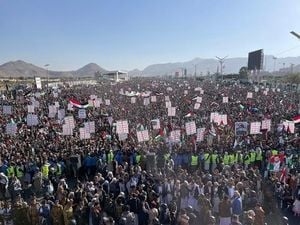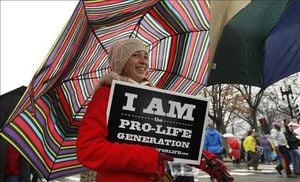Volkswagen, one of the world’s automotive giants, has been thrust into the spotlight in Brazil after a landmark court ruling ordered its local subsidiary to pay 165 million reais (about $30.44 million) in damages for subjecting workers to slave-like conditions at a company-owned Amazonian cattle ranch during the 1970s and 1980s. The judgment, delivered on Friday, August 29, 2025, by the Redenção labor court in Pará state, is the largest such reparation ever imposed in Brazil for modern slave labor, according to the country’s Labor Prosecutor’s Office.
The court’s decision follows a years-long investigation into Volkswagen’s operations at Fazenda Vale do Rio Cristalino, a sprawling ranch deep in the Amazon. The abuses, prosecutors say, occurred during Brazil’s military dictatorship, when the government actively encouraged corporations to develop and colonize the Amazon region through incentives for ranching and logging projects. Volkswagen’s subsidiary purchased the land in the mid-1970s as part of this national push, with the farm ultimately serving as both a cattle ranch and a logging operation.
The story came to light thanks to the tireless work of Ricardo Rezende, a local priest and then regional coordinator of the Rural Pastoral Commission, who spent decades gathering evidence and documenting the plight of the workers. The Labor Prosecutor’s Office launched its formal investigation in 2019 after receiving Rezende’s files. Despite attempts at an out-of-court settlement, talks collapsed in 2023 when, according to prosecutors, Volkswagen “showed no interest” in reaching an agreement. The company was finally sued in December 2024, leading to the historic ruling.
The court found that between 1974 and 1986, about 300 workers were hired under irregular contracts to clear forest and prepare pastures. They were monitored by armed guards, lived in precarious housing, received insufficient food, and were forced to remain on the farm through a system of debt bondage. No medical care was provided, even for those suffering from malaria. As one former worker, Jose Pereira, testified in 2022 to German broadcaster ARD, “If anyone tried to escape, the guards went after them and shot them. They beat up those who had escaped. On the street, in the huts, everyone saw it.”
Judge Otavio Bruno da Silva Ferreira, presiding over the case, concluded that the conditions at the ranch met the legal definition of slave labor. In his ruling, he emphasized the lasting impact of such abuses: “Slavery is a ‘present past,’ because its marks remain in Brazilian society, especially in labor relations.” Ferreira also noted that the legacy of Brazil’s colonial slave system continues to shape social structures and that acknowledging this history is essential for guiding antidiscrimination judgments today.
In addition to the financial penalty, the court ordered Volkswagen do Brasil to formally acknowledge responsibility, issue a public apology, and adopt a zero-tolerance policy on slave labor in all its operations. This aspect of the ruling is seen by many as a crucial step toward addressing the broader legacy of forced labor in Brazil’s Amazon frontier and corporate involvement in human rights violations during the dictatorship era.
Volkswagen’s Brazilian headquarters responded swiftly, announcing its intention to appeal the decision. In a statement, the company asserted, “With a 72-year legacy, the company consistently upholds the principles of human dignity and strictly complies with all applicable labour laws and regulations.” The company added, “Volkswagen reaffirms its unwavering commitment to social responsibility, which is intrinsically linked to its conduct as a legal entity and employer.”
Yet, this is not the first time Volkswagen’s past in Brazil has come under scrutiny. According to Reuters and other outlets, the company’s São Bernardo do Campo factory was implicated in collaborating with the military dictatorship, providing employee names to authorities that led to arrests and torture of workers suspected of subversive activities. In 2020, Volkswagen paid $6.4 million in compensation to victims and their families for these abuses. The latest court ruling now adds a new chapter to the company’s ongoing reckoning with its historical liabilities.
The financial impact of the ruling is significant. The $30.44 million fine, combined with ongoing legal battles, has contributed to pressure on Volkswagen’s stock price, which has dropped nearly 25% year-to-date in 2025. The company also recently cut its operating margin guidance for the year from 5.5–6.5% down to 4–5%, citing legal costs—including those related to the Brazil case—as a contributing factor. For investors, these developments serve as a stark reminder of how legacy human rights violations can resurface decades later, inflicting both financial and reputational harm.
Volkswagen’s environmental, social, and governance (ESG) profile, while improved in recent years, continues to reflect these historical controversies. The company now ranks 43rd out of 84 in the Automobiles industry for ESG risk, according to Sustainalytics and MSCI, and has adopted new policies such as appointing a Human Rights Officer and implementing supply chain due diligence. However, the legacy of past abuses—including the infamous 2015 diesel emissions scandal—continues to weigh on the brand’s reputation and investor confidence.
Brazil’s own history looms large in the background. The country enslaved more people from Africa than any other nation and was the last in the Western Hemisphere to abolish slavery, in 1888. The echoes of this past, as Judge Ferreira noted, continue to shape contemporary labor relations, especially in remote regions like the Amazon where law enforcement and oversight have often been weak.
For those who worked at Fazenda Vale do Rio Cristalino, the court’s decision represents a long-overdue acknowledgment of their suffering. For Volkswagen, it is a test of how a global corporation confronts the shadows of its past while navigating the demands of modern social responsibility. As the company prepares its appeal and the case continues to attract international attention, the broader lesson is unmistakable: the costs of corporate legacy, especially when intertwined with human rights abuses, can endure for generations.
As Brazil and the world watch what comes next, the Volkswagen case stands as a powerful example of how justice, memory, and accountability remain intertwined—and how the road to genuine corporate responsibility is often paved with the hard truths of history.






